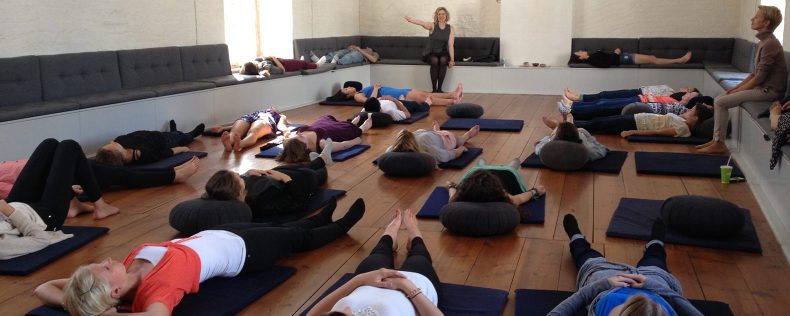The project explores the subjective experience of self and the implications that different configurations of self-identity have on human relations and well-being, with a particular focus on transformation of prejudice, and the development of well-being. There are two points of focus of the project:
- The development and transformation of the individual and the individual’s experience of ‘self’ through reflective, meditative immersive practices including the practice of silence and the construction and reconstruction of meaning.
- The development and transformation of interpersonal relations and the experience of the ‘other’ through dialogical, and dramaturgical immersive processes.
The two points of focus are nevertheless related and inform each other as a change in the experience of ‘self’ can often relate to a change in the experience of ‘other’ and vice versa. The overall aim is to explore the connection between the transformation and development of the human, and the transformation and development of human relations and human systems towards higher levels of personal and social well-being.
Research assistants can choose to work specifically on one of the two points of focus of the project. This could be through:
- Helping the mentor with analyzing quantitative data generated from a one-year longitudinal study on a well-being intervention
- Conducting a literature review of the topics related to the two points of focus as given above
- Proposing a totally new exploration related to the two points of focus and co-creating a new sub-project. This could be running an intervention and comparing pre and post intervention results or it could be a qualitative exploration of a particular topic related to the two points of focus above
Both quantitative and qualitative research skills are applicable to this project and assistants can expect to learn and practice methods of each.
Depending on the interest of the assistants, a decision can be made on whether the assistants will work alone or in a group with each other. As such, the project involves significant flexibility and aims at engaging research assistants in ways that would be most meaningful to them whilst also contributing to the overall aim of the project.
Select Mentor Publications:
- Ahmad, S.S. Mishra, S. & Kumar, S. (2013). Motivated Reasoning, Leadership and Team Performance – Case Study. Ivey Publishing, Richard Ivey School of Business, London, Canada.
- Ahmad, S.S. (2013). Human Happiness, Striving and Performance. In Rethinking Human Behaviour in Modern Economics. Institute for Studies in Global Prosperity, New York.
Related Discipline(s)
This course would also be of interest to the following discipline(s):Philosophy, Political Science, Sociology

